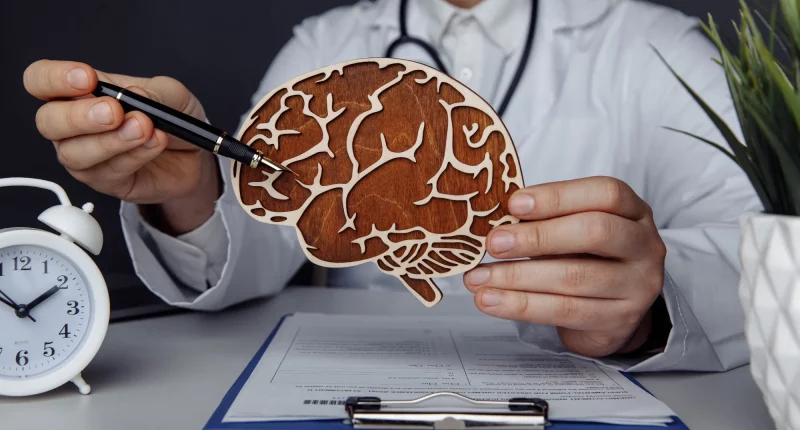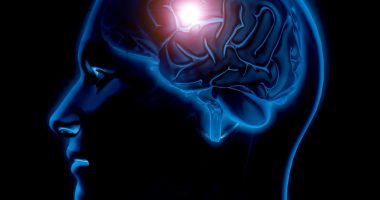Aphasia is a condition that makes it hard for people to use language. This means they might have trouble speaking, understanding what others say, reading, or writing. Not everyone with aphasia will have problems in all these areas. It often occurs after a stroke.
Aphasia can also occur because of brain damage from diseases like Alzheimer’s or from a stroke. The difficulties a person faces depend on which areas of their brain are hurt. Research shows that between 9% and 62% of individuals who have a stroke experience some level of aphasia.
In the past, “aphasia” was used for people who couldn’t communicate at all, and “dysphasia” was used for those who had partial difficulties with language. However, because “dysphasia” sounded too much like “dysphagia,” which means trouble swallowing, doctors now use “aphasia” to describe all levels of language problems.
Types and Symptoms of Aphasia
Aphasia comes in several forms, each with unique symptoms and challenges.
Fluent Aphasia (Wernicke’s Aphasia)
People with fluent aphasia struggle to understand the sense of spoken words. They can create connected speech, but it often lacks coherence and may include irrelevant or nonsensical words. This condition can also make reading and writing difficult. Despite speaking fluently, their speech might not make sense to others.
Non-Fluent Aphasia (Broca’s Aphasia)
Individuals with non-fluent aphasia find it hard to produce speech. Their speech tends to be short, halting, and requires significant effort. They often struggle to find the right words and may have trouble forming sounds correctly. Writing can also be affected, though they usually retain their ability to read and understand spoken language.
Global Aphasia
This is the most severe form of aphasia, impacting all features of language. People with global aphasia can often say only a few recognizable words and have great difficulty understanding speech. Reading and writing abilities are also severely impaired.
Anomic Aphasia
Those with anomic aphasia can speak grammatically correct sentences but have trouble naming words and objects. They might “talk around” a word they can’t remember, trying to describe it instead. Despite these challenges, their ability to listen and read typically remains unaffected.
A person with aphasia usually has noticeable difficulties with language and speech, which can be frustrating and emotionally challenging. The specific problems they encounter depend on the kind of aphasia they are affected. Additionally, paralysis or weakness on one or both sides of the body or face can further complicate writing and speech production. This can also affect the muscles used for breathing and swallowing, which in turn impacts the ability to produce sounds correctly.
Causes of Aphasia
Aphasia occurs when the parts of the brain responsible for language and speech are damaged. These parts, known as the language centers, include Wernicke’s area and Broca’s area. Damage to these areas or the neural pathways linking them can cause aphasia. The damage can be due to several reasons:
- Brain injury
- Stroke
- Brain tumor
- Epilepsy
- Migraine
- Parkinson’s disease
- Alzheimer’s disease
Diagnosis of Aphasia
Aphasia is often diagnosed by a speech-language pathologist shortly after a stroke, as many stroke survivors experience this condition. The evaluation process includes several basic exercises to evaluate the patient’s language abilities:
- Naming Objects: The patient may be asked to name objects that start with a particular letter to test their ability to recall words.
- Writing or Reading: They might be asked to read a passage or write a simple sentence to evaluate their reading and writing skills.
- Conversation: The patient will engage in a conversation to assess their ability to communicate effectively.
- Understanding Directions: They may be given directions or commands to follow, testing their comprehension skills.
The Boston Diagnostic Aphasia Examination is a test often used to thoroughly assess a patient’s language skills.
A complete diagnosis also involves imaging tests like a CT or MRI scan. These scans help determine the place and extent of brain damage that has led to the aphasia. This information is crucial for developing an appropriate treatment plan to help the individual regain their language skills as much as possible.
Treatment for Aphasia
The main treatment for aphasia is language and speech therapy. While most people may not fully recover their communication skills, speech therapy can make a big difference, even for those with severe aphasia like global aphasia.
Speech therapy focuses on achieving several goals:
- Improving Existing Language Skills: The therapy helps individuals make better use of the language abilities they still have.
- Relearning Language Skills: Patients work on relearning language skills they’ve lost due to aphasia.
- Adapting Communication: Therapists teach techniques for communicating differently, such as finding alternative ways to express thoughts when certain words are difficult to recall.
Since aphasia varies from person to person, therapy techniques are tailored to each individual’s needs.
Melodic Intonation Therapy (MIT)
This therapy is often used for non-fluent aphasia. This involves singing or humming phrases and words in rhythm to stimulate brain action in the right hemisphere. This can make the patient able to say more words.
Group Therapy
In group therapy, a small group of individuals with aphasia work together with a therapist. They practice and make better their language skills by meeting with others in a supportive environment.
Promoting Aphasic’s Communicative Effectiveness (PACE)
This therapy focuses on improving communication skills through conversation. Patients are shown pictures or drawings and encouraged to answer in any way they can. Conversations start simple and become more complex over time.
Computerized Script Training (CST)
This therapy uses computer-delivered scripts based on everyday conversations. It allows patients to practice their communication skills in realistic situations.
How to Support Someone with Aphasia
Here are some simple tips to help you communicate effectively with people who have aphasia:
- Get Their Attention: Before you start speaking, make sure you have the person’s attention and sustain eye contact to help them focus.
- Reduce Background Noise: Remove background noise as much as possible to make it easier for the person to hear and understand you.
- Speak Clearly and Slowly: Maintain your voice at a usual volume but speak more gradually than common. Use short, simple sentences and avoid asking questions that require complicated answers.
- Stay on Topic: Don’t modify the main line of conversation suddenly, as this can confuse the person with aphasia.
- Give Them Time: Don’t rush the person to respond. Give them time to process their thoughts and speak.
- Utilize Yes/No Questions: Use questions that can be answered with “yes” or “no” to make it easier for them to respond.
- Be Supportive: Downplay any errors in their speech and avoid rectifying them, as this can be frustrating. Instead, focus on understanding the message they’re trying to convey.
- Participate in Normal Activities: Encourage the person to participate in normal activities as much as possible to help them feel included and connected.
- Remember Their Tone: Keep in mind that their tone of voice may not always reflect their mood. Their disorder affects how they communicate, but it doesn’t necessarily change their emotions.
- Keep Supplies Handy: Keep a notepad and pen nearby to help them communicate if needed. Writing things down can be helpful for both of you.
- Treat Them with Respect: Remember that despite their aphasia, the person’s ability to think is not necessarily impaired. Treat them with respect and talk to them as you would any other intelligent adult.
By following these tips, you can make communication easier and more effective for both you and the person with aphasia.
Complications of Aphasia
Aphasia doesn’t just affect the ability to speak and understand; it can also impact various aspects of life, such as relationships and finances. Communication is essential for everyday activities, so when it’s disrupted, it can cause frustration and distress for the person with aphasia and the people they love. This frustration can sometimes lead to impatience from those around them. Combined with other factors of a stroke, aphasia can even contribute to feelings of depression.
To help cope with these challenges, individuals with aphasia are encouraged to join support groups where they can connect with others facing similar struggles. It’s also beneficial to have someone assist them practice their skills regularly. If the person is at the chance of depression, it’s important for them to see a doctor for treatment and support.
Before visiting the doctor, a friend or family member can assist the person with aphasia by practicing what they want to speak out or writing down any queries they can have. This preparation can make the doctor’s visit more productive and less stressful for everyone involved.
Preventing Stroke to Reduce Aphasia Risk
Stroke is the primary cause of aphasia, so taking steps to prevent a stroke can significantly reduce the risk of developing aphasia.
Precautions to Prevent Stroke
- Regular Exercise
- Healthy Eating
- Blood Pressure Control
- No Tobacco
- Moderate Alcohol
- Stress Management
Recognizing Stroke Symptoms
It’s important to recognize the signs of a stroke and seek medical attention immediately if someone experiences it. Quick medical intervention is crucial for recovery. Signs of a stroke include:
- Vision Issues
- Coordination Problems
- Numbness or Weakness
- Speech Difficulties
- Sudden Headache
Being aware of these symptoms and taking action can help prevent strokes and reduce the risk of developing aphasia.
Summary
In summary, preventing strokes is key to reducing the risk of aphasia. By adopting healthy lifestyle habits such as regular exercise, balanced nutrition, and stress management, individuals can lower their chances of experiencing a stroke. Recognizing the signs of a stroke and seeking prompt medical attention is essential for effective treatment and recovery. Through support groups and regular communication practice, individuals living with aphasia can enhance their quality of life. With proactive measures and awareness, we can work together to minimize the impact of aphasia and promote better outcomes for those affected.









